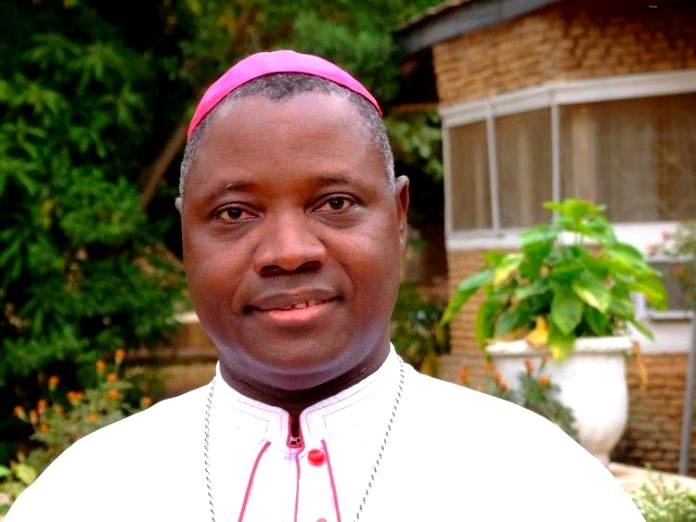Nigerian leaders and panelists, at the 2021 Obafemi Awolowo Annual Lecture, have reiterated the necessity of building a united and progressive Nigeria through massive education and a re-engineered constitution.
The webinar lecture, held on Saturday evening and chaired by Nobel Laureate Wole Soyinka, was to mark the 112 birthday anniversary of the late Sage and former Premier of Western Region, Chief Obafemi Awolowo.
The Special Guest, Chief Emeka Anyaoku, a Diplomat and former Commonwealth Secretary-General, who noted that the current state of affairs in the country was not sustainable, emphasised the need for one Nigeria.
“There is no section or ethnic group in Nigeria that does not stand to gain from belonging to one country.
“It is in the common interest of all the ethnic groups and component parts to sustain the oneness, for progress of the country,” Anyaoku said.
He decried the growing poverty, incessant attacks, killings and displacement of people by terrorists and bandits, growing level of distrust and divisiveness undermining the cohesion and continued existence of one Nigeria.
The elder stateman, who noted that these national challenges should be effectively dealt with to make progress, however, stated that they could not be tackled with the present federal system of government.
Anyaoku said that a federal system with less dominance of the federal would bring Nigeria back to the path of political stability and progress.
He advocated the Indian type of federal system as against the US, saying that India shared a lot of national attributes with Nigeria.
He urged the National Assembly to organise an all-inclusive national dialogue, taking into account previous national conferences to produce a consensus constitution, as only a restructured constitution would guarantee political stability and economic development.
The Sultan of Sokoto and Royal Father of the Lecture, Alhaji Sa’ad Abubakar, who noted that the processes of Nation building always took time, said that insinuations, suspicions and provocative utterances had held the country back.
He decried the inaction of governments and the erosion of the nation’s founding father’s healing, understanding and accommodation processes among ethnic groups, while calling on the political class and religious leaders to manage social tensions.
“We can solve our problems without a stick. No problem is beyond dialogue, ” Abubakar said, while cautioning against violence and tribal wars.
He urged government to act promptly and swiftly in addressing national challenges and send strong signals to divisive elements.
The Guest Speaker, Mr Odia Ofeimun, who delivered a lecture on the theme; “Whither Nigeria? “, emphasised the necessity of education for all children and ending minority domination of the nation, to overcome her teething challenges and make progress.
Ofeimun, who stressed the need for ethnic nationalities, said that the nation had many unresolved issues such as Boko Haram, Indigenous People of Biafra, herdsmen and others, all of which had been fueling secession pressures.
“We need to discuss what belongs to us as a people. This is a country that is worth defending and we should all defend it. We need to free ethnic nationalities so that Nigeria can be free,” he said.
Emphasising the need for restructuring, Ofeimun, who called on political leaders to take responsibility, decried political financing and the widening gap in education between the south and the north.
“There is a way of managing Nigeria such that every child will go to school. We must put all the cards on the table and discuss Nigeria. We need a less dominant centre. If we go by this, we are moving towards having a country.
“Every government should give every child education, to address some of our problems. There are so many children roaming the streets without education and hope. Every child in the north needs to go to school.
“We have to plan a country, Awolowo did it and it worked. It is important we bring all Nigerians into education like the Awolowo Education Policy did. Nobody should be left out,” he said.
In his contribution, the former Emir of Kano, Alhaji Sanusi Lamido Sanusi, said that some of Nigeria’s issues were not ethnicity or religion, but economic and governance, saying that the nation’s expensive system of government had also hindered her progress.
Wrapping up the dialogue, Soyinka observed that there was a consensus on the country requiring restructuring that would allow decentralisation and devolution of powers, adding that a lot could be done on the Constitution to allow greater autonomy for the state.
Soyinka, who said that the current system was not working and should not be allowed to continue, called for an honest and people-oriented Constitution to set the country on the path of progress.
Dr Dosunmu Awolowo, one of the daughters of the late sage, said that Obafemi Awolowo Foundation’ lecture was instituted to honour Chief Awolowo, noting that Nigerians wanted the country to work and are willing to sit together to find solutions to the nation’s challenges.
The News Agency of Nigeria (NAN) reports that the lecture, moderated by Prof. Michael Faborode, had several eminent Nigerians, both from within and abroad emphasising the need to address our national challenges without delay. (NAN)




